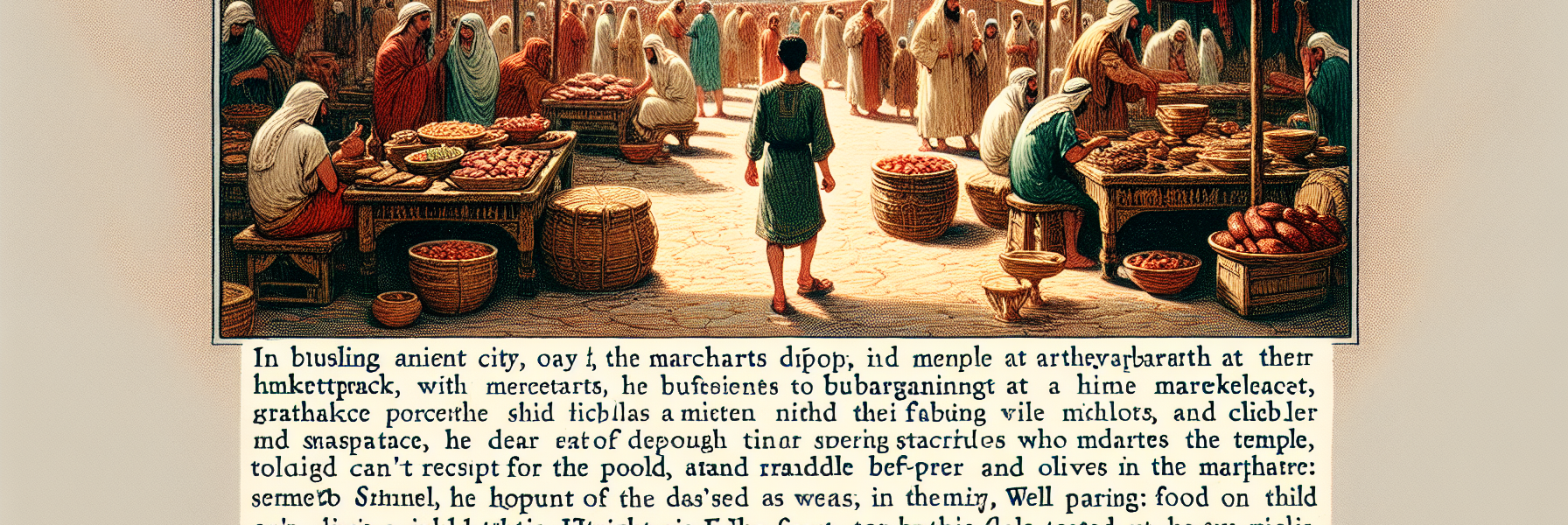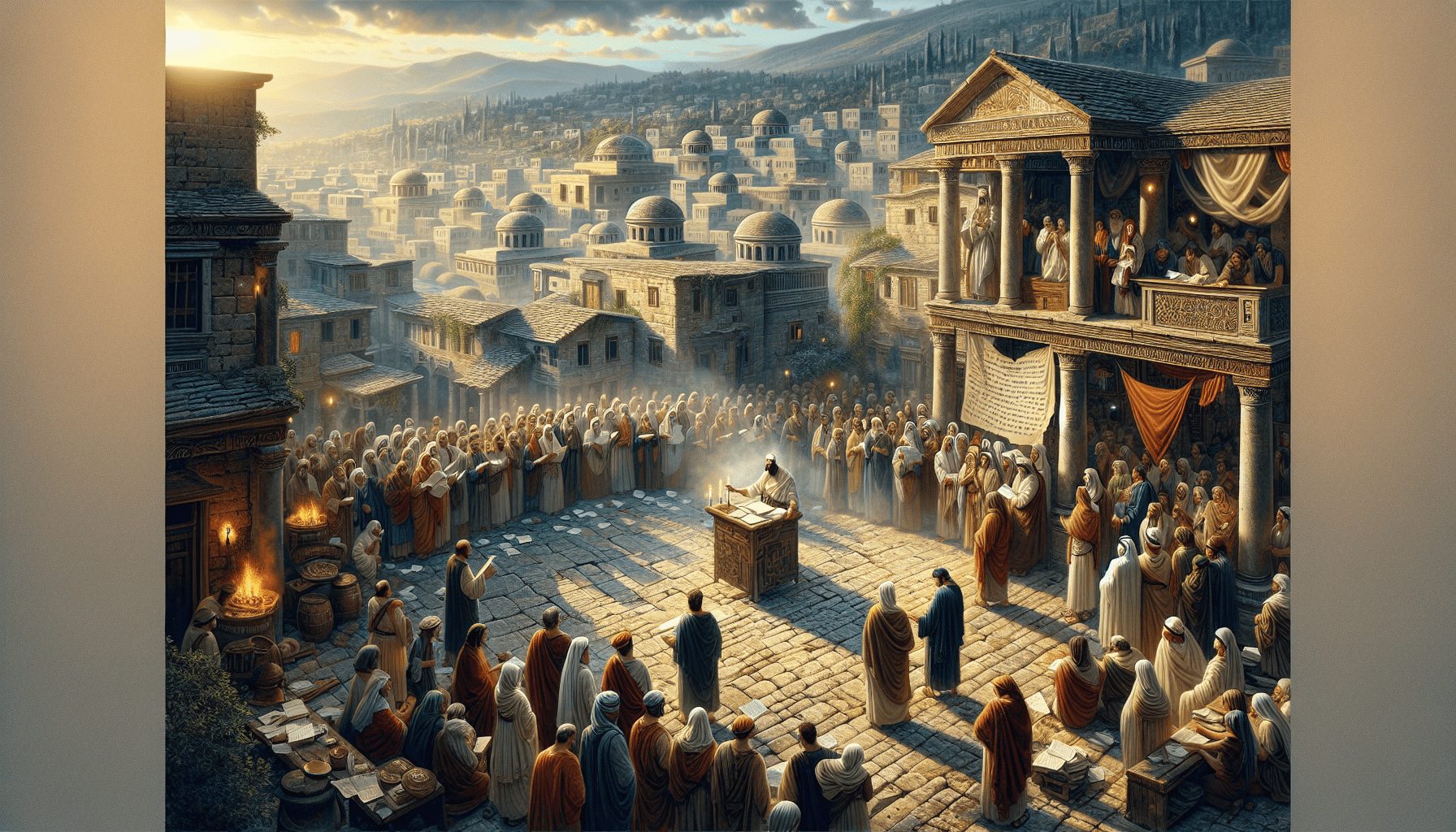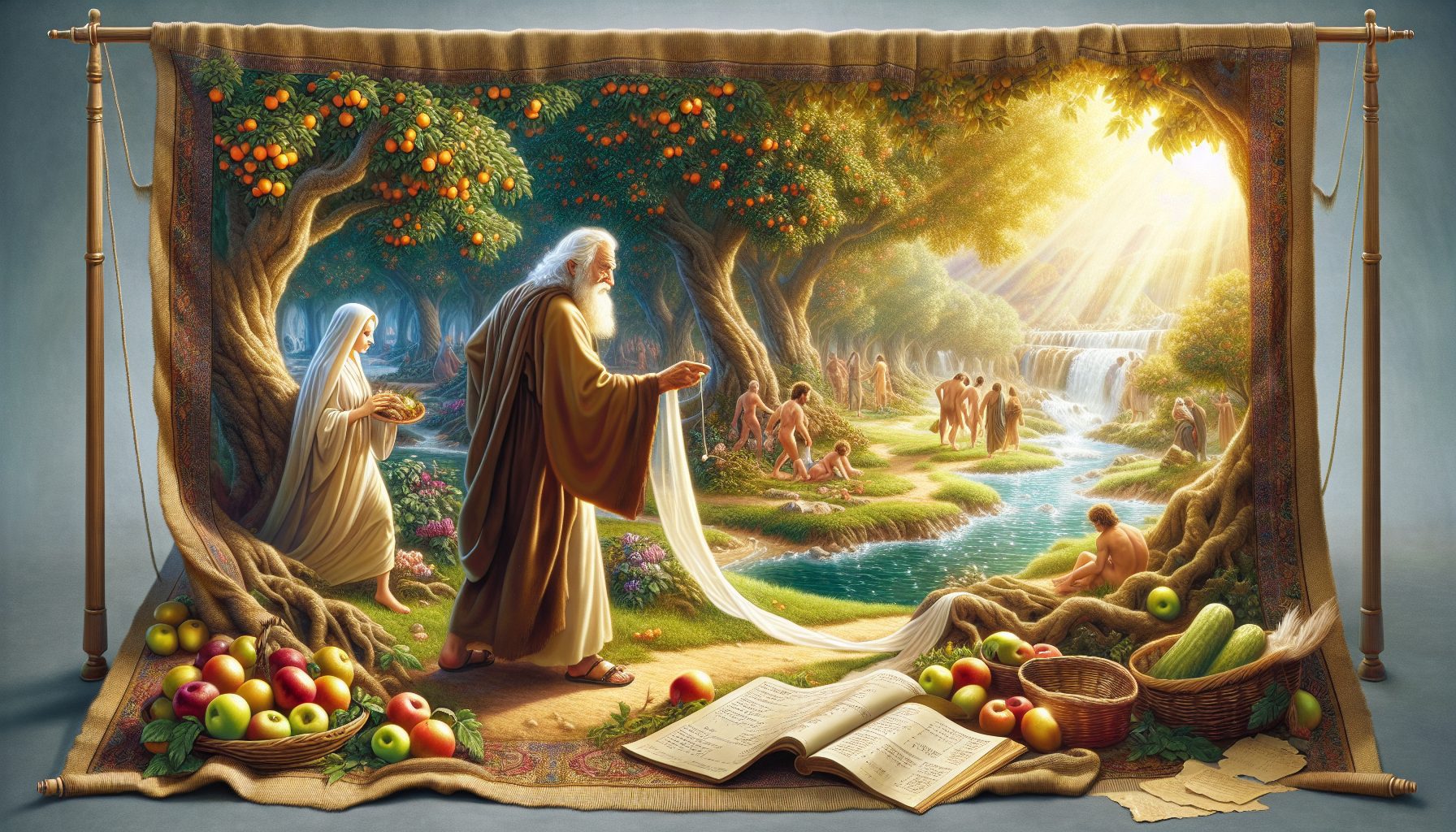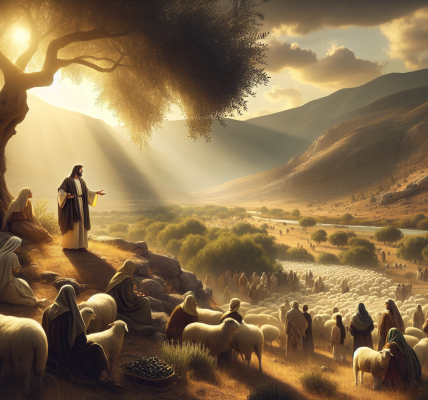**The Banquet of Wisdom: A Tale of Discernment and Discipline**
In the bustling city of Jerusalem, where merchants haggled in the markets and priests offered sacrifices in the temple, there lived a young man named Eliab. He was the son of a humble potter, but his heart yearned for wealth and prestige. One day, as he wandered through the marketplace, he overheard a group of men speaking of a lavish banquet hosted by a wealthy nobleman named Rehob.
*”The tables groan under the weight of roasted meats and fine wine,”* one man said. *”Rehob spares no expense for his guests!”*
Eliab’s mouth watered at the thought. He had never tasted such delicacies, and his stomach growled in protest at the simple barley bread and olives he ate each day. Without hesitation, he resolved to attend the feast, though he had not been invited.
### **The Alluring Feast**
That evening, Eliab donned his best tunic and smoothed his hair with oil. He approached Rehob’s grand house, where torches blazed at the entrance, and the sound of laughter and music spilled into the street. The guards, seeing his eager face, assumed he was a guest and let him pass.
Inside, the banquet hall was a vision of opulence. Silver platters held figs drizzled with honey, tender lamb seasoned with rare spices, and golden goblets brimming with wine. Rehob sat at the head of the table, his fingers adorned with rings, his laughter booming as he raised his cup.
Eliab’s eyes widened. He hurried to an empty seat and reached for the nearest dish, piling his plate high. The wine flowed freely, and soon his head grew light with indulgence. Around him, guests feasted without restraint, their voices rising in merriment.
But then, his gaze fell upon Rehob. The nobleman’s smile did not reach his eyes. Though he offered food and drink, his gaze was calculating, his words smooth but insincere.
*”Eat, my friend, drink your fill!”* Rehob said, clapping Eliab on the back. *”What is mine is yours!”*
Yet when Eliab reached for another portion, he noticed Rehob’s subtle frown. The man’s generosity was a mask—his true intent was to ensnare.
### **The Voice of Wisdom**
As Eliab lifted his cup once more, a quiet voice stirred in his heart—a voice he recognized from his father’s teachings.
*”When you sit to dine with a ruler, note well what is before you, and put a knife to your throat if you are given to gluttony. Do not crave his delicacies, for that food is deceptive.”* (Proverbs 23:1-3)
Eliab paused. The rich flavors turned to ashes in his mouth. He remembered the warnings of the sages—that the allure of wealth could be a trap, that a man’s hospitality might hide manipulation.
Across the room, he saw another guest, a man named Jotham, who had eaten and drunk without restraint. Now, his face was flushed, his speech slurred. Rehob leaned close, whispering in his ear. The next morning, Jotham would wake to find himself bound by promises made in drunkenness—his fields pledged to Rehob for a fraction of their worth.
### **The Choice to Walk Away**
With sudden clarity, Eliab pushed his plate away. He rose from the table, ignoring the confused glances of the other guests. As he stepped into the cool night air, his heart was heavy but his spirit was free.
The next day, he returned to his father’s pottery shop, where the smell of clay and the warmth of the kiln welcomed him. His father looked up, wisdom in his eyes.
*”Did you find what you sought, my son?”*
Eliab shook his head. *”I found a table of deception, but wisdom called me away.”*
His father smiled. *”Better a dry crust with peace than a house full of feasting with strife.”* (Proverbs 17:1)
### **The True Banquet**
Years later, Eliab became a teacher of wisdom. He often recounted his experience at Rehob’s banquet, warning his students:
*”Do not let your heart envy sinners, but always be zealous for the fear of the Lord. For surely there is a future hope, and your hope will not be cut off.”* (Proverbs 23:17-18)
And when he broke bread with others, it was with gratitude—not for the richness of the food, but for the richness of a life lived in discernment. For he had learned that true satisfaction was not found in the fleeting pleasures of the world, but in the enduring wisdom of God.
**The End.**




